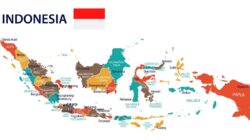By Hilma Safitri (Linguist and a Lecturer at Universitas Pamulang)
Learning a foreign language in Indonesia has long been seen as both a positive step forward and a potential threat to our national identity. On one hand, it opens doors for Indonesians to keep pace with global advancements in science and technology. On the other hand, there’s concern that embracing foreign languages might erode our cultural identity, as foreign values and customs often accompany language instruction.
The prevalence of foreign languages in daily life among students and scholars is undeniable. Words like “telephone” and others have seamlessly integrated into our vernacular. This linguistic assimilation reflects a broader trend of foreign language usage within our society.
Historically, the use of foreign languages in Indonesian education dates back to the colonial era under Dutch rule. Back then, the nobility and elite natives were educated in Dutch-administered primary schools, where foreign language instruction, including Dutch, Japanese, and German, was mandatory.
However, as time progressed, foreign language learning became more accessible and mainstream. Today, everyone can easily pursue language studies, even toddlers in kindergarten are exposed to English instruction.
Other foreign languages, such as German, French, Japanese, Arabic, and Mandarin, are typically introduced in high school, albeit as supplementary subjects. English remains the primary international language.
The rationale behind incorporating foreign language instruction at various educational levels is twofold. Firstly, much of the world’s knowledge and technology is documented in English or other foreign languages. Therefore, proficiency in English or another foreign language facilitates Indonesia’s access to global advancements in knowledge.
Secondly, in today’s interconnected world, advances in information technology and transportation have transformed us into a global community without physical or temporal boundaries.
It is imperative for students, scholars, and all Indonesian citizens to discern between the positive and negative influences of foreign languages on the development of Bahasa Indonesia. By understanding the positive impacts, we can collectively uphold and preserve our national language while safeguarding it against negative foreign influences.
In conclusion, while the acquisition of foreign languages offers numerous benefits, we must remain vigilant in protecting and promoting Bahasa Indonesia as a vital component of our national identity. By striking a balance between embracing foreign languages and nurturing our native tongue, we can ensure Indonesia’s linguistic and cultural heritage endures for generations to come.










